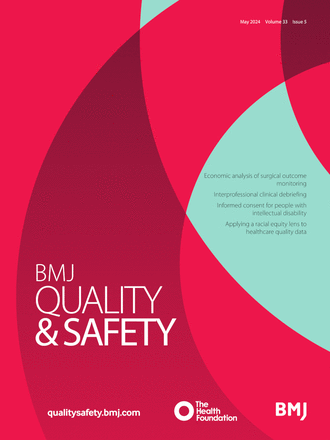An anthropologist’s insight into healthcare data – multiple and rich of contradictions
IF 5.6
1区 医学
Q1 HEALTH CARE SCIENCES & SERVICES
引用次数: 0
Abstract
Readers of this journal will be familiar with the power of data to inform healthcare decisions, processes, policies and investments, with the goal of better patient care. They may also know first-hand how these data are always limited, partial, political and context-dependent,1–3 yet useful and necessary nonetheless. This is one of the data paradoxes recounted in the book by the same name,4 by Professor Klaus Hoeyer, University of Copenhagen. The book examines the work that is required to produce and use data in healthcare, while also exploring the contradictions inherent in these data that make it challenging to inform improvements, practice and policy. It is based on research about the Danish healthcare system, although its arguments are applicable internationally. The paradoxes are universal, as is the data work involved. The book is rich in conceptual insight, anecdotes and storytelling and questions our data knowledge, judgement and wisdom. This is the type of insight one gets from anthropology5—and its core method, ethnography6—which can challenge assumptions and reveal the lived experience and complexity of health and healthcare. In the quality improvement community, insight from anthropology and ethnography is sought to identify aspects of care that need improvement,6 as well as ‘what good looks like’,7 while being aware …人类学家对医疗数据的洞察--多重而丰富的矛盾
本期杂志的读者一定很熟悉数据在为医疗决策、流程、政策和投资提供信息方面的力量,其目标是为患者提供更好的医疗服务。他们也可能亲身体会到,这些数据总是有限的、片面的、政治性的和受环境影响的1-3,但仍然是有用和必要的。这就是哥本哈根大学克劳斯-霍耶尔(Klaus Hoeyer)教授的同名著作4 中讲述的数据悖论之一。该书探讨了在医疗保健领域生产和使用数据所需的工作,同时也探讨了这些数据中固有的矛盾,这些矛盾使得为改进、实践和政策提供信息具有挑战性。本书基于对丹麦医疗保健系统的研究,尽管其论点适用于国际范围。矛盾是普遍存在的,所涉及的数据工作也是如此。书中蕴含着丰富的概念见解、趣闻轶事和故事情节,对我们的数据知识、判断力和智慧提出了质疑。这正是人类学5 及其核心方法--人种学6 所带来的洞察力,它可以挑战假设,揭示生活经验以及健康和医疗保健的复杂性。在质量改进领域,人们寻求从人类学和民族志中获得洞察力,以确定需要改进的医疗服务方面6 以及 "好的样子 "7 ,同时意识到......
本文章由计算机程序翻译,如有差异,请以英文原文为准。
求助全文
约1分钟内获得全文
求助全文
来源期刊

BMJ Quality & Safety
HEALTH CARE SCIENCES & SERVICES-
CiteScore
9.80
自引率
7.40%
发文量
104
审稿时长
4-8 weeks
期刊介绍:
BMJ Quality & Safety (previously Quality & Safety in Health Care) is an international peer review publication providing research, opinions, debates and reviews for academics, clinicians and healthcare managers focused on the quality and safety of health care and the science of improvement.
The journal receives approximately 1000 manuscripts a year and has an acceptance rate for original research of 12%. Time from submission to first decision averages 22 days and accepted articles are typically published online within 20 days. Its current impact factor is 3.281.
 求助内容:
求助内容: 应助结果提醒方式:
应助结果提醒方式:


